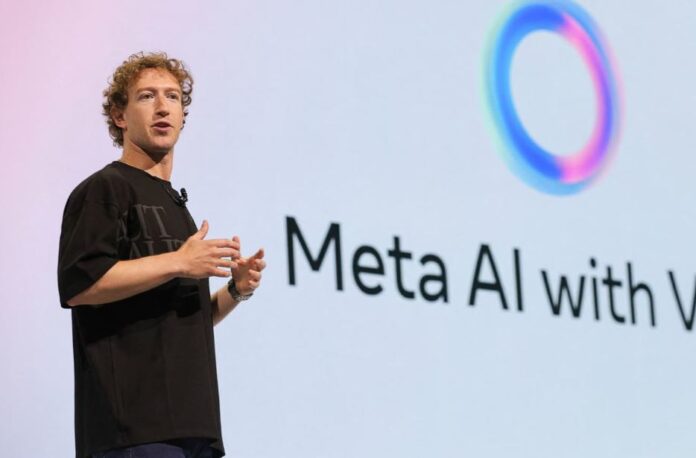Joelle Pineau, Meta’s vice president for AI research, announced on Tuesday that she will step down from her role at the end of May, concluding an eight-year tenure with the tech giant. Her departure from the high-profile position comes at a pivotal moment as competition in artificial intelligence development heats up across the industry.
In a social media post, Pineau reflected on her decision, stating, “Today, as the world undergoes significant change, as the race for AI accelerates, and as Meta prepares for its next chapter, it is time to create space for others to pursue the work.” Based in Montreal, where she also serves as a computer science professor at McGill University, Pineau has been a key figure in Meta’s AI strategy, championing an “open-source” approach. This philosophy is exemplified by Meta’s flagship large language model, Llama, which allows public access to its core components for use or modification.
Meta, the parent company of Facebook and Instagram, did not immediately respond to requests for comment on Pineau’s exit or potential successors. Her announcement arrives just weeks before the company’s inaugural LlamaCon AI conference, set for April 29, which is expected to spotlight Meta’s advancements in AI technology.
Pineau took the helm of Meta’s AI research division in 2023, succeeding Yann LeCun, a pioneering AI researcher who founded the group—originally called Facebook AI Research—in 2013. LeCun stepped down as director in 2018 but remains Meta’s chief AI scientist. Under Pineau’s leadership, the division has focused on advancing AI systems to enhance Meta’s platforms and services.
Her exit raises questions about the future direction of Meta’s AI efforts, especially as rivals like Google, Microsoft, and OpenAI intensify their own AI innovations. Pineau did not disclose her next move, leaving the industry watching closely to see who will fill the void at Meta and how the company will navigate the next phase of its AI ambitions.
With the global AI landscape evolving rapidly, Pineau’s departure underscores the dynamic shifts within the sector. Meta has leaned heavily on its open-source strategy to differentiate itself, fostering collaboration and innovation beyond its walls. Llama, in particular, has been a cornerstone of this approach, positioning Meta as a leader in accessible AI development.
As the company prepares for LlamaCon, the timing of Pineau’s announcement adds an extra layer of intrigue. Industry observers speculate that Meta may use the event to unveil new AI initiatives or signal a strategic pivot. For now, Pineau’s legacy at Meta—marked by her advocacy for transparency and collaboration in AI—sets the stage for her successor to build upon in an increasingly competitive field.
Key Points:
- Departure Announcement: Joelle Pineau, Meta’s vice president for AI research, revealed on Tuesday that she will leave her role at the end of May after eight years with the company.
- Reason for Leaving: Pineau cited the accelerating AI race, global changes, and Meta’s transition to its next chapter as reasons to “create space for others to pursue the work,” as stated in a social media post.
- Role and Influence: Based in Montreal and a professor at McGill University, Pineau has led Meta’s “open-source” AI strategy, notably with the Llama large language model, making core components publicly available for use and modification.
- Timing Context: Her exit comes ahead of Meta’s first LlamaCon AI conference on April 29, spotlighting the company’s AI advancements, and amid intense industry competition from firms like Google, Microsoft, and OpenAI.
- Leadership History: Pineau began directing Meta’s AI research division in 2023, taking over from Yann LeCun, who founded the group in 2013 and stepped down as director in 2018 but remains Meta’s chief AI scientist.
- Meta’s Response: Meta, the parent company of Facebook and Instagram, has not yet commented on Pineau’s departure or named a replacement.
- Industry Implications: Her departure raises questions about Meta’s future AI direction, especially as the company leverages its open-source approach to stand out in a rapidly evolving global AI landscape.
- Legacy and Next Steps: Pineau’s tenure emphasized transparency and collaboration in AI development, leaving a foundation for her successor, though she has not disclosed her future plans.



